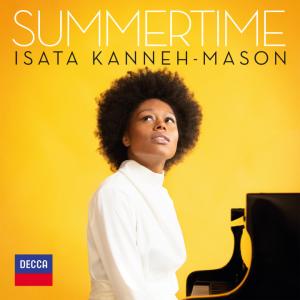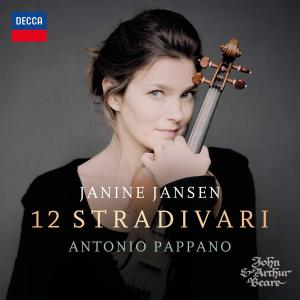Chamber Music by Erich Wolfgang Korngold
Eusibius Quartet ● Alastair Beatson Piano
SOMM Recordings SOMMCD 0642 [68:30]
Pre-pandemic I would have been put off reviewing this album by its title but since March 2019, with lockdown and social distancing, most of the new releases have needed to be by small groups or soloists; and with more time to listen my appreciation of these genres has been increased.
(Hal Mooney)
Analysed by Robert Walton
I first encountered Hal Mooney’s Orchestra on an MGM 78 of Helen Forrest singing I Wish I didn’t Love You So. Strings and voice dominated this 1947 Frank Loesser song, spoilt slightly by the shrillness which was sometimes a problem with early MGM discs.
(Hal Mooney)
Analysed by Robert Walton
I first encountered Hal Mooney’s Orchestra on an MGM 78 of Helen Forrest singing I Wish I didn’t Love You So. Strings and voice dominated this 1947 Frank Loesser song, spoilt slightly by the shrillness which was sometimes a problem with early MGM discs. Mooney was first noticed in the business by two of his swing tunes Swamp Fire and Rigmarole, which played the rounds of the dance bands in the mid-30s. Joining another Hal, (Kemp), Mooney became his arranger-pianist in 1937. After settling in California he scored for Bing Crosby, Haymes, Lee, Starr, Garland, Sinatra and Vaughan.
But to give you a more detailed idea of his ability for string writing, I strongly advise you to take a listen to Gemini. It’s one of the fastest light orchestral pieces I’ve ever heard, but more than that, it’s played with a perfection that only a group of the finest fiddlers could produce. No room for “dead wood” or hangers-on in this recording session! In fact it’s as if they were all chosen from the same symphony orchestra. Hence the outstanding result.
A brilliant solo flute with pizzicato strings introduces this attempt at “breaking” the world record. While muted brass interject, the strings immediately switch to arco in readiness for one of the greatest sprints in musical history. There’s no way any tortoises could violate the start but the rest all leave their blocks together! Woodwind and brass provide the necessary fills.
Then taking a leaf out of the David Rose format, suddenly and very sensibly, the orchestra takes a well-earned break. The brass play three solid chords before the strings resting on their laurels spin a gorgeous slow tune based on the frantic theme, interspersed with the oboe and flute.
We’re soon back up to speed with the main melody but this time the horn and brass echo what the strings have just been playing. It’s a staggering performance of a brilliant arrangement which I doubt could ever be achieved again. A sort of “one off” job you might say. Even the listeners are out of breath, let alone the players. It’s the kind of composition/orchestration that the British were famous for. Clearly the Americans had caught up!
Guild Light Music GLCD 5153. (Gemini is from the 1957 LP “Musical Horoscope”)
 CD Review - Jean-Yves Thibaudet
CD Review - Jean-Yves Thibaudet
Carte Blanche
Decca 485 2081 [79:09']
When those nice people from Decca, with an eye to business, invited the virtuosic French-American pianist Jean-Yves Thibaudet to record his own personal selection for an album celebrating his 60th birthday, they might have shown even more potential sales optimism
Ernest Tomlinson
Naxos 8.555190 [72’21”]
Our hopes fulfilled: we have not had to wait long for Vol.2 of ‘British Light Music’ and – after Addison – it looks as if the series is going to be in alphabetical order.
Rose-Marie
(Friml,Harbach,Hammerstein II)
Billy May’s Orchestra
Analysed by Robert Walton
Right in the centre of a collage created by my wife of my personal and professional life, is a photograph of me holding a 10 inch 1950’s 78rpm disc of Billy May’s Rose-Marie. This was around the time the long playing disc first saw the light of day. It represented one of the first highly technical big band recordings on a 78, standing out as something really special.
Rose-Marie
(Friml,Harbach,Hammerstein II)
Billy May’s Orchestra
Analysed by Robert Walton
Right in the centre of a collage created by my wife of my personal and professional life, is a photograph of me holding a 10 inch 1950’s 78rpm disc of Billy May’s Rose-Marie. This was around the time the long playing disc first saw the light of day. It represented one of the first highly technical big band recordings on a 78, standing out as something really special. Capitol Record’s engineers had somehow managed to put all that brass and saxophones on to a simple 78, sounding a million miles from the 1940s. It was as if a brand new era had emerged. In fact it almost gave the impression of stereo on a 78. One wonders had the new 78 technology arrived earlier in the previous decade, would Stan Kenton have benefited?
When I was working in radio at Station 1ZB Auckland in 1955, there was a strict policy of the sort of music to be selected for the morning Breakfast Session. Nothing too noisy or jazzy was permitted. Music of a calm and cheerful mood was the order of the day, like Powder Your Face with Sunshine, Manhattan Playboy, or Dear Hearts and Gentle People. One morning (you’ve guessed it) a record planner had inexplicably included Rose-Marie in the mix. By the time the Head of Programmes and Station Manager arrived at the beautiful Art Deco building for work, they were absolutely apoplectic. The planner almost lost his job! That was the only time Billy made the Breakfast Session! Great dance music it certainly was but more suitable for late night consumption.
Billy May was perhaps the most versatile arranger of them all. An early outstanding chart was Carnival by two Harrys: composer Warren and trumpeter James. Then there were those brilliant scores for the Sparky Children’s Series. But May is best remembered for his glissing unison saxes, reviving Jimmy Lunceford’s lightly swinging style. Sometimes May was more “Nelson Riddle” than Riddle with Autumn in New York and Moonlight in Vermont for Frank Sinatra. However, simple tunes like Friml’s 1924 Rose-Marie proved to be ideal for May’s style, in fact even in the 21st Century that style is still the standard sound for any big band.
The opening trumpets with some perfectly placed piano comping is as fresh today as it was then. The slurping saxes take a turn at the tune, but when the brass return for the finale the orchestra erupts into a virtual volcano. On the San Andreas Big Band Fault Line, May’s outburst will remain etched on the memory forever!
Billy May “Naughty Operetta” EMI 4 98836 2
 CD Review – Janine Jansen
CD Review – Janine Jansen
12 Stradivari
Antonio Pappano
Decca 4851605 [59:24]
This is one extraordinarily exciting release. Although there is only a single piece of pure light music – Jerome Kern's Yesterdays, arranged by Fritz Kreisler – it should be of fascinating interest to all lovers of the violin...
 The talented pianist, singer, arranger and composer Barbara Moore has died after a long illness, aged 89. Born in Yorkshire, Barbara was the daughter of saxophonist and arranger Arthur Birkby. She was an early member of The Ladybirds backing group.
The talented pianist, singer, arranger and composer Barbara Moore has died after a long illness, aged 89. Born in Yorkshire, Barbara was the daughter of saxophonist and arranger Arthur Birkby. She was an early member of The Ladybirds backing group.
As well as composing music for commercials and the De Wolfe Music Library, she wrote the new, up-dated arrangement for Brian Fahey's celebrated signature tune At The Sign Of The Swinging Cymbal, still used on BBC Radio 2's Pick Of The Pops. She later worked with Jimi Hendrix, Dusty Springfield, Elton John, Tom Jones and Dudley Moore, with whom she became a close friend.
At one time Barbara was married to arranger Pete Moore (1924-2013), former Head of Orchestrations at Radio 2; their daughter Lindsay sadly died in her 40s.
In her later years Barbara moved to the coastal town of Bognor Regis, where she became a well-known personality, performing locally and lecturing at the University of Chichester.
https://www.barbaramoore.co.uk/
Anthony Wills
© August 2021
This year's releases get better and better. The Divine Art label – located in "God's own county" of Yorkshire – has recorded for our delight this attractive disc of melodic Russian/Slav music.


